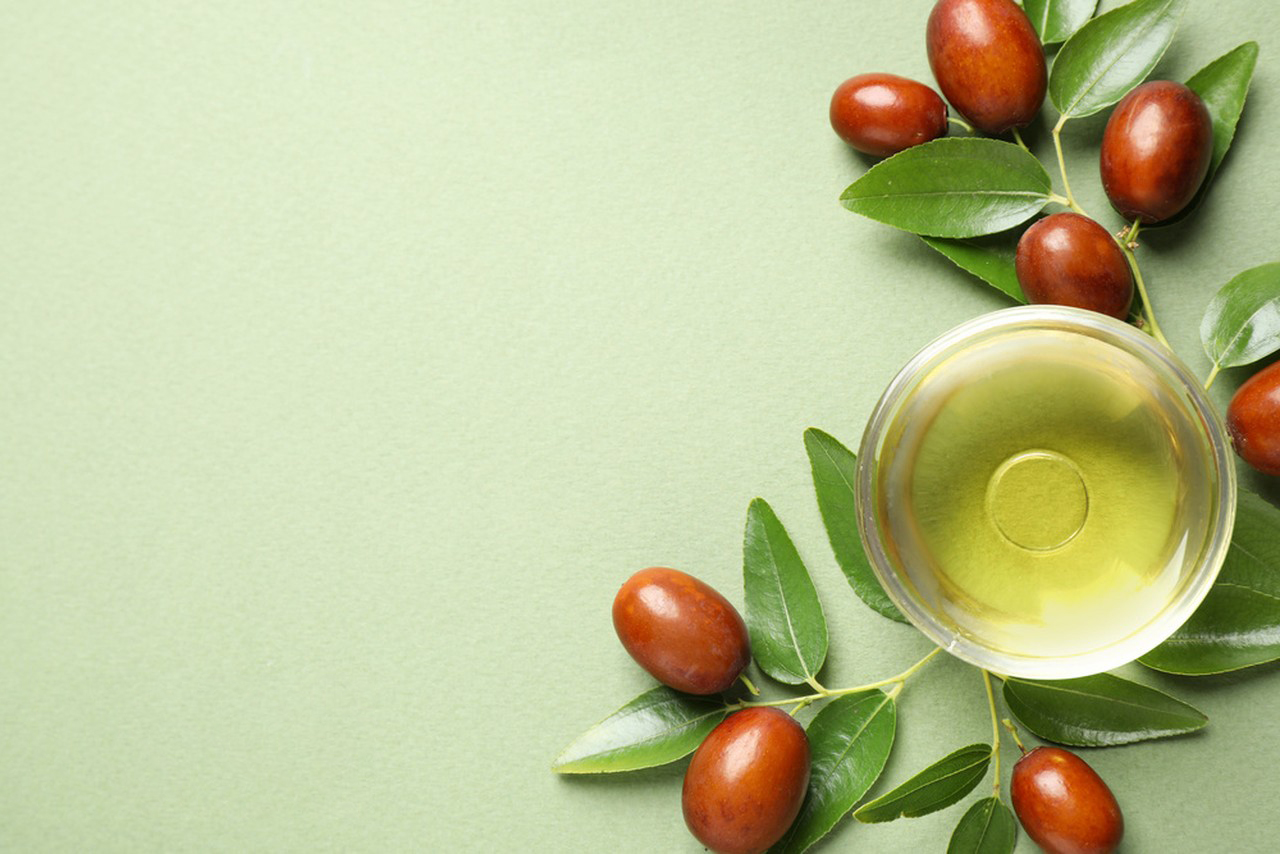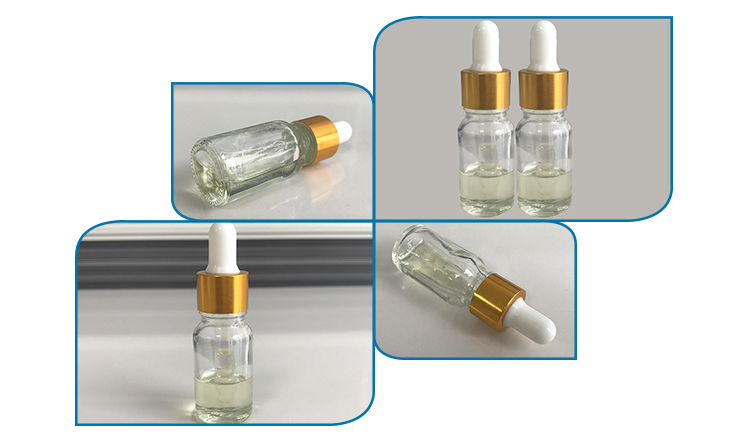Jojoba oil is actually not an oil but a liquid wax ester extracted from the seeds of the jojoba plant (Simmondsia chinensis). Here’s a simplified synthesis process:
Harvesting: Jojoba seeds are harvested from the jojoba plant.
Extraction: The seeds are mechanically pressed or extracted using solvents like hexane to obtain jojoba oil.
Purification: The crude jojoba oil obtained from extraction may contain impurities. It undergoes purification processes such as filtration or centrifugation to remove these impurities.
Deodorization and refining: To improve the odor and color of the oil, it may undergo deodorization and refining processes. These processes involve heating the oil to remove any remaining impurities and unwanted odors.
Hydrogenation (optional): Sometimes, hydrogenation is performed to convert some of the unsaturated fatty acids in jojoba oil into saturated fatty acids. This process can increase the oil’s stability and shelf life.
Packaging: The final purified jojoba oil is then packaged for distribution and use in various industries such as cosmetics, pharmaceuticals, and food.

The process might vary slightly depending on the manufacturer and the desired quality of the jojoba oil. However, the basic steps involve extraction, purification, and refining to obtain the final product.
The main uses of Jojoba Oil
Jojoba oil, derived from the seeds of the jojoba plant, is a versatile and popular ingredient in skincare, haircare, and cosmetic products. Here are some of its main uses:
Moisturizer: Jojoba oil is well-known for its moisturizing properties. It is similar to the natural oils produced by the skin, making it an effective moisturizer for all skin types, including oily and acne-prone skin. It helps to hydrate the skin without clogging pores.
Makeup Remover: Due to its gentle yet effective cleansing properties, jojoba oil can be used as a natural makeup remover. It dissolves makeup, including stubborn waterproof formulas, and helps to lift dirt and impurities from the skin.
Hair Conditioner: Jojoba oil is beneficial for hair health. It can be used as a hair conditioner to moisturize and soften dry, damaged hair. Applying jojoba oil to the scalp can also help to regulate sebum production, reducing greasiness and promoting healthier hair growth.
Scalp Treatment: Jojoba oil has soothing and anti-inflammatory properties, making it an excellent treatment for dry, itchy scalp conditions such as dandruff or psoriasis. Massaging jojoba oil into the scalp can help to alleviate discomfort and nourish the skin.
Carrier Oil: Jojoba oil serves as a popular carrier oil for diluting essential oils in aromatherapy and massage. It is lightweight, non-greasy, and easily absorbed into the skin, making it an ideal base for creating custom oil blends.
Lip Balm: Jojoba oil can be used to hydrate and protect chapped lips. Its emollient properties help to soften the delicate skin on the lips, keeping them smooth and moisturized.
Shaving Prep: Jojoba oil can be used as a natural alternative to shaving cream or gel. It provides a smooth surface for shaving, reduces friction, and helps to prevent irritation and razor burn.
Sunburn Relief: The soothing and anti-inflammatory properties of jojoba oil make it a helpful remedy for sunburned skin. Applying jojoba oil to sunburned areas can help to reduce redness, inflammation, and discomfort.

Acne Treatment: Contrary to common belief, jojoba oil can be beneficial for acne-prone skin. Its antibacterial properties help to combat acne-causing bacteria, while its moisturizing properties prevent the skin from overproducing oil in response to dryness, which can exacerbate acne.
Cuticle Oil: Jojoba oil can be used to moisturize and nourish dry, cracked cuticles. Massaging jojoba oil into the cuticle area helps to soften the skin and promote healthy nail growth.
These are just a few of the many uses of jojoba oil. Its versatility and gentle nature make it a popular choice for natural skincare and haircare enthusiasts.
